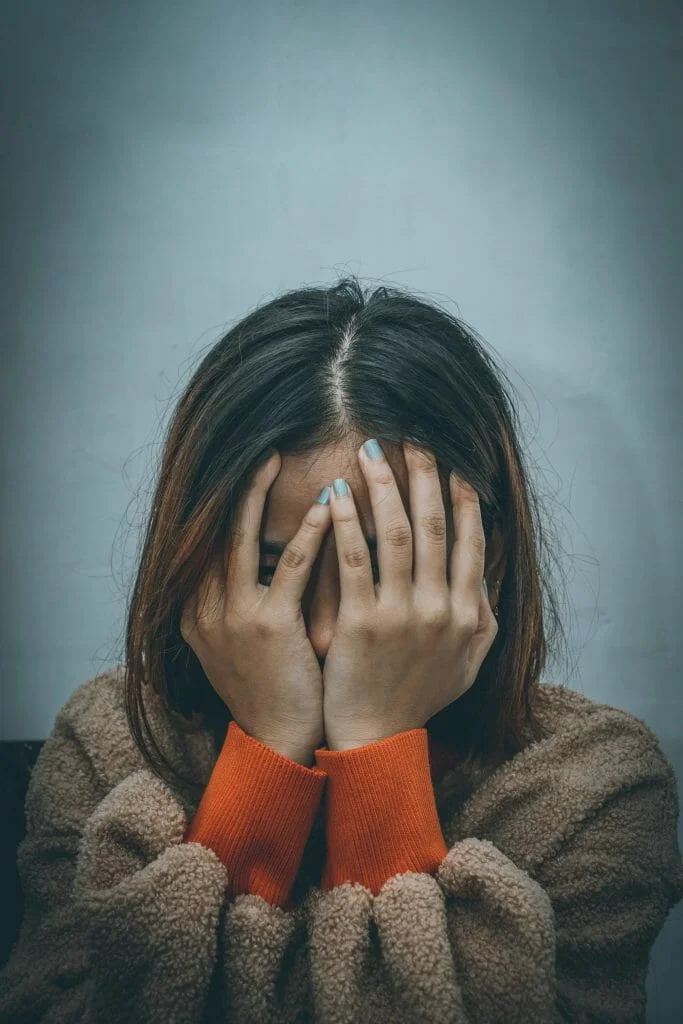
March is Brain Injury Awareness Month, which aims to raise awareness about the impact of brain injuries and the importance of prevention, recognition, and proper treatment.
At Revival, we have seen and treated a lot of concussions. Unfortunately, there is a lot of misunderstanding or misinformation around concussions that may have contributed to why clients continued to have symptoms for so many years before working with us. A concussion is a common injury, particularly in sports, and can have long-term consequences if not managed properly.
WHAT IS A CONCUSSION?
From a medical definition standpoint, a concussion is a form of traumatic brain injury largely described as an acceleration or deceleration of the brain induced by trauma directly to the head or sufficient trauma to the body causing a sudden and brusque movement of the head (20). You can sustain a concussion from falling on your butt or with whiplash of the neck. Direct impact on the head is not required to sustain a concussion.
During a concussion, different areas of the brain will accelerate at different rates, causing strain and deformation of multiple axonal membranes and leading to a molecular cascade of events (20). Temporary damage to brain cells and blood vessels causes an inflammatory response which can be felt through the multitude of side effects such as headaches, dizziness, vision changes, nausea, irritability and increased emotionality, difficulty concentrating and remembering, disturbed sleep etc. (17)
WHAT ARE SYMPTOMS OF A CONCUSSION?
Each individual can present with different symptoms not only when compared to other individuals with a concussion but to their own previous experiences with a concussion. These symptoms may appear immediately or hours or even days after the injury. In some cases, they may last for weeks or even months, and in severe cases, may result in permanent brain damage. Some symptoms often tied to a concussion include:
- Headache
- Pressure in Head
- Neck Pain
- Nausea or Vomiting
- Blurred Vision
- Balance Problems
- Sensitivity to Light
- Sensitivity to Sound
- Feeling Slowed Down
- Feeling “In a Fog”
- Don’t Feel Right
- Difficulty Concentrating
- Difficulty Remembering
- Fatigue or Low Energy
- Confusion
- Drowsiness
- Trouble Falling Asleep
- More Emotional
- Irritability
- Sadness
- Nervous or Anxious
THE IMPORTANCE OF A PROPER DIAGNOSIS AND TREATMENT FOR CONCUSSIONS
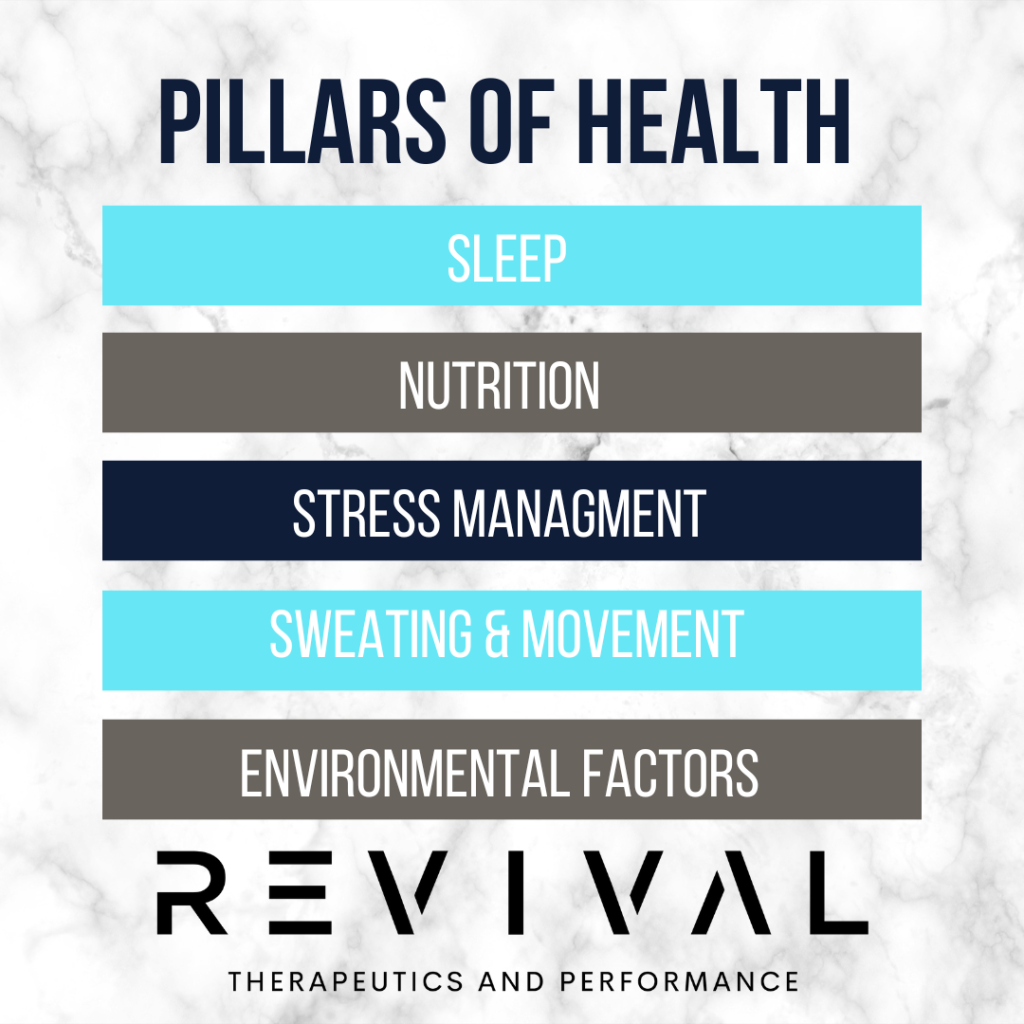
Concussion side effects have been generally addressed through various ways including a period of rest and a gradual return to activities both physically and mentally, prescribed medication for some symptoms such as headaches and lots of manual therapy in a rehabilitative setting (20).
REST IS NOT ALWAYS BEST FOR CONCUSSION RECOVERY
Concussion side effects have been generally addressed through various ways including a period of rest and a gradual return to activities both physically and mentally, prescribed medication for some symptoms such as headaches and lots of manual therapy in a rehabilitative setting (20).
While a reduction in activity is always recommended after a concussion, no definitive research exists to support the strategy of complete rest following a concussion. A study by De Kruijk et al. showed there was no difference in outcomes with bed rest vs no bed rest in the first week after a concussion, and a study by Buckely et al. showed that two days of prescribed full physical and cognitive rest did not improve recovery time compared to those offered accommodations (3).
Furthermore, a study by Grool et al, also found that those who engaged in physical activity within 7 days after their concussion had a lower risk of persistent postconcussive symptoms compared to those who waited longer to engage in physical activity (8). The study suggests that early physical activity may be an important component of concussion management especially in children and adolescents (8).
“After a brief period of rest during the acute phase (24-48 hours) after injury, patients can be encouraged to become gradually and progressively more active while staying below their cognitive and physical symptom-exacerbation thresholds.”(13). With that being said, an evaluation should always be completed by a healthcare practitioner trained in concussion assessment.
At Revival, individualized assessment and treatment is the first step. Our team then works with you to create a plan to eliminate your symptoms and get you back to your activities. In addition to different technologies such as our Bioflex Laser and our referral network, Revival utilizes different manual therapeutic modalities such as craniosacral, vestibular, neuromeningeal therapies and visceral therapy to assist with the treatment and management of concussions and post-concussion syndrome. A systematic review of different modalities conducted by Reid et al, has concluded that individual tailored manual therapies have a considerable effect on returning individuals to normal activities and show considerable clinical improvement in concussion management and treatment (15).
MANUAL THERAPY FOR CONCUSSION RECOVERY
Manual therapy, also known as hands-on therapy, involves the manipulation of soft tissues, such as muscles, tendons, and ligaments, to improve blood flow, reduce pain and inflammation, and promote healing. Several types of manual therapy may be beneficial for individuals with concussions, including the following:
CRANIOSACRAL THERAPY (CST)
Craniosacral therapy involves the gentle manipulation of the skull and spine to improve the flow of cerebrospinal fluid, which nourishes the brain and spinal cord. This therapy can help reduce headaches, dizziness, and other symptoms associated with concussions. Craniosacral therapy (CST) is a gentle approach to releasing soft tissue while mobilizing restricted bones all in conjunction to the craniosacral system that becomes impinged during a concussion.
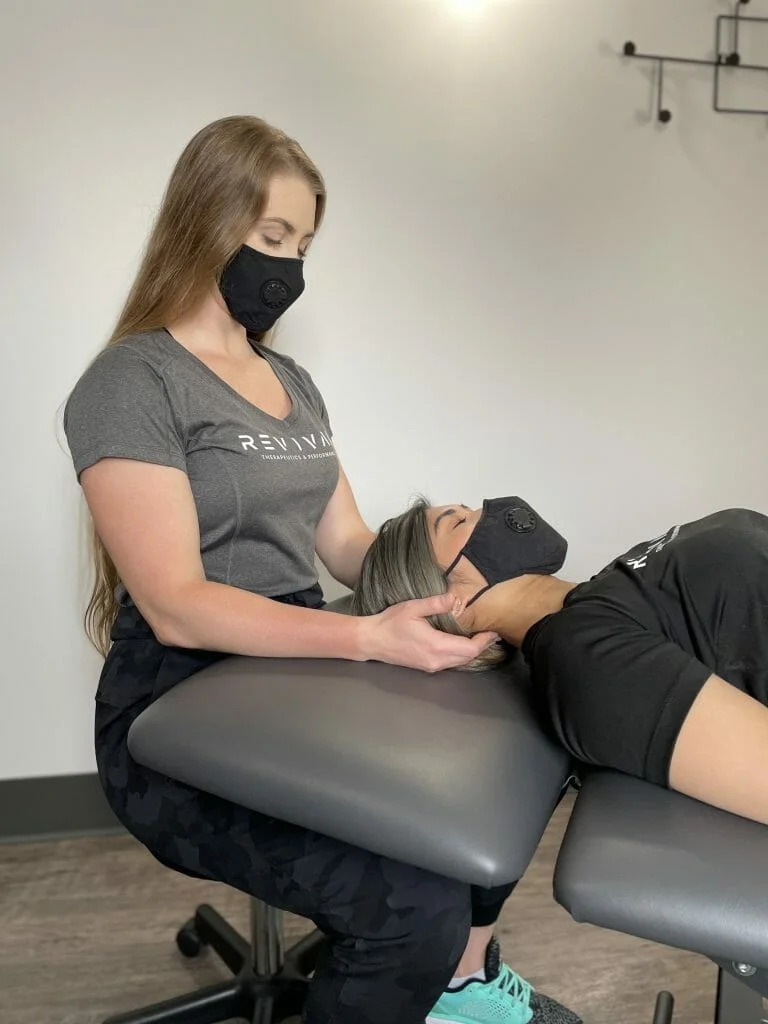
By definition, the craniosacral system comprises the membranes and the cerebrospinal fluid that protect the brain and spinal cord. It has been noted that changes in the cerebrospinal fluid cause rhythmic motions of the skull. The Concussion Alliance have suggested that craniosacral therapy can be effective at treating headaches as well as neck and back pain from concussions. From a therapy standpoint, the gentle manipulation of CST can restore plate, suture and membrane mobility in the skull and restore balance to the cerebrospinal fluid . A 2017 study by Wetzler et al. found that 10 sessions of CST combined with neuromeningeal and visceral manipulation saw greater improvements in pain intensity, range of motion, memory, cognition and overall sleep in concussed patients (11).
VISUAL & VESTIBULAR THERAPY
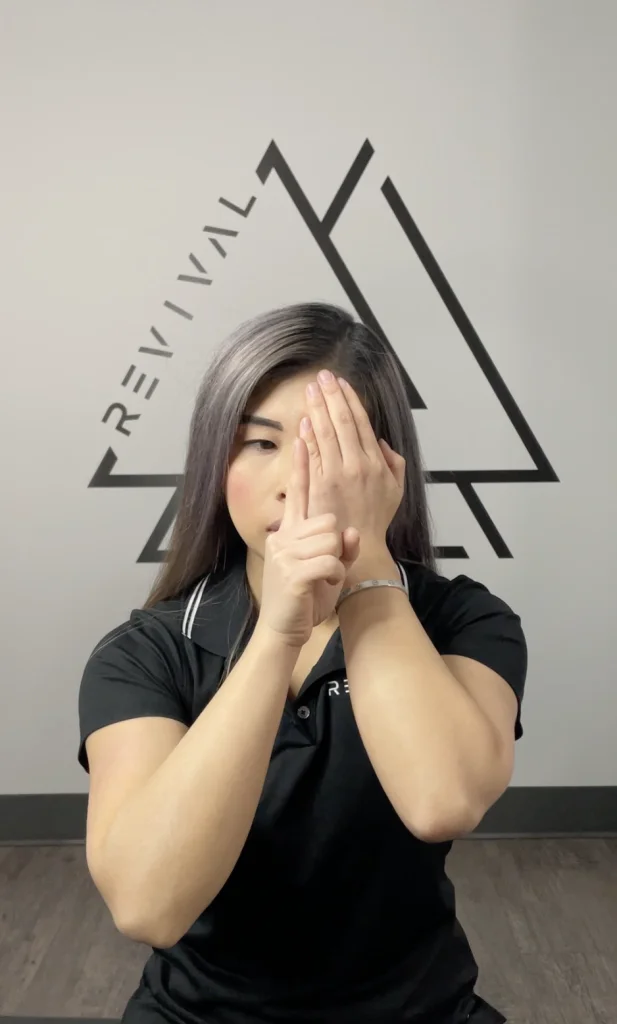
Visual and vestibular therapy aims to help with balance and dizziness, two common post-concussion symptoms. Issues with these symptoms may show up in other ways such as with difficulty concentrating or difficulty reading. During an assessment, a healthcare practitioner may identify a visual or vestibular deficit that requires intervention such as manual therapy and an exercise based program.
Exercise-based programs often focus on habituation exercises, gaze stabilization and balance training (2). Habituation exercises aim to help a person with dizziness due to self motion or because of visual stimuli by gradually exposing them to specific movements and stimuli that produce the dizziness. Over time and with dedication, the dizziness spells can reduce as the brain can learn to ignore the abnormal signal.
Gaze stabilization exercises are used to improve vision during head movement and balance stabilization and includes exercises that are moderately challenging but safe enough so the individual suffering from balance problems can safely do them. Bressi et al found that vestibular therapy is effective in the treatment of balance improvement, visual stabilization and both static and dynamic posture stability.
As with all symptoms and limitations, it is important to work with a healthcare provider to create the right plan for you.
NEUROMENINGEAL MANIPULATION THERAPY
Neuromeningeal therapy helps facilitate nerve movement in relation to the fascia, organs and bones. It examines the mechanical relationships between the cranium/spine hard frame to the dura and neural elements. Neuromeningeal therapy is a gentle hands on technique that releases any nerve impingements while also seeing how these impingements affect the rest of the body and nervous system. It is designed to help improve overall nervous connections throughout the body by creating extra neural mobility. In terms of concussions, because of the acceleration and deceleration of the brain inside the skull during the trauma, nerves can become impinged in various places and neuromeningeal therapy becomes a treatment modality to alleviate that.
VISCERAL MANIPULATION THERAPY
Visceral Manipulation therapy is a manual therapy technique that works on the internal organs of the body. It involves gentle, specific manual pressure on the soft tissues and organs of the body, to help them move and function optimally. The therapy aims to release restrictions and tension in the connective tissue surrounding the organs, which can affect the organs’ mobility and function. This therapy is based on the principles of osteopathy and was developed by French osteopath Jean-Pierre Barral in the 1970s.
After a concussion, the body undergoes significant trauma that can affect the functioning of internal organs, including the brain. The connective tissue surrounding the organs can become restricted and tense, affecting their mobility and function. Concussions can impact digestion, leading to symptoms such as abdominal pain, bloating, and nausea, as well as disruptions in GI function and changes in gut microbiota.
A study by Lis et al. showed that patients with a recent concussion had significantly more GI symptoms than the control group, including abdominal pain, bloating, and nausea. The concussion group also had significantly slower gastric emptying times and reduced bowel transit times, indicating that their GI function was disrupted (12).
VMT can help alleviate tension and promote optimal organ function, aiding in the body’s healing process after a concussion. VMT can also help alleviate pain and discomfort associated with the concussion, such as headaches, dizziness, and nausea.
SUPPLEMENTS TO SUPPORT CONCUSSION RECOVERY
In addition to manual therapy, certain supplements may also be beneficial for individuals with concussions. These supplements can help support brain function, reduce inflammation, and promote healing. There are no pharmacological therapies for concussions.
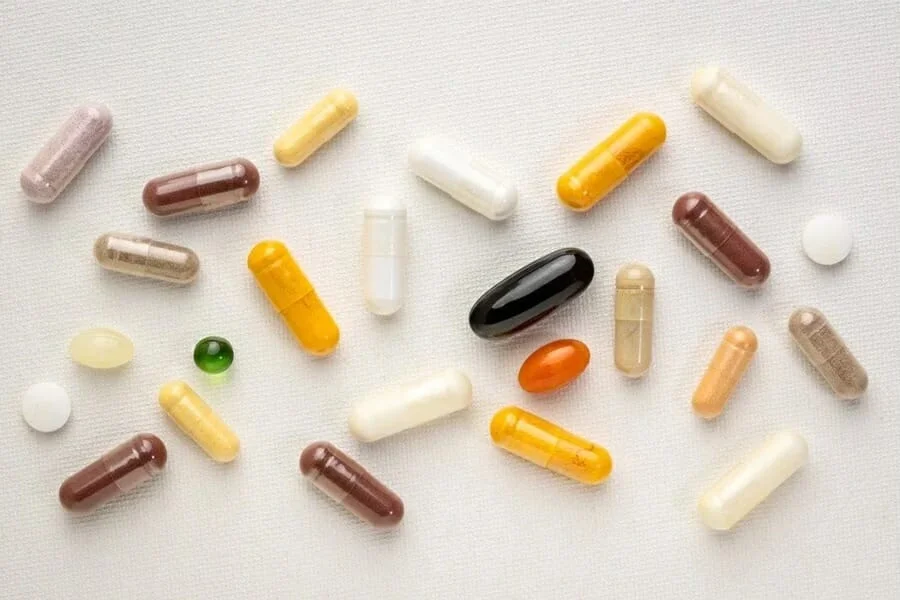
It is recommended that no non-steroidal anti-inflammatory drugs be taken for at least 72 hours post-concussion to avoid brain bleeding and any drugs that may mask worsening symptoms such as high dose analgesics or sedatives that might interfere with mental status changes be avoided (17). However once the crucial time has elapsed and with a doctor’s approval, certain supplements might help to get back to feeling normal. Some of the most effective supplements for concussion recovery include:
OMEGA 3 FATTY ACID
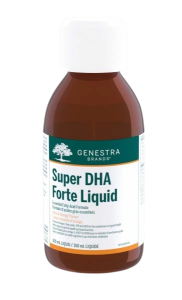
Omega-3 fatty acids are essential nutrients that are found in fish oil and in addition to other sources such as krill. These fatty acids are important for brain function and can help reduce inflammation and improve healing after a concussion.
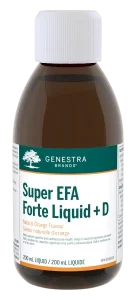
One research study conducted by Mills et al. investigated the effects of omega-3 fatty acid supplementation on brain injury. The study found that supplementation with omega-3 fatty acids resulted in reduced inflammation and improved cognitive outcomes in patients with traumatic brain injury (14). Another study by Wu et al. investigated the effects of EPA and DHA on brain function and found that supplementation with EPA and DHA improved cognitive function and reduced inflammation in patients with traumatic brain injury (26). Additionally, a study by Wibrand et al. found that DHA increased BDNF levels in the hippocampus, which is involved in learning and memory (25). These studies suggest that omega-3 fatty acid supplementation, particularly with EPA and DHA, may be helpful for reducing inflammation and promoting brain healing after a concussion.
CURCUMIN
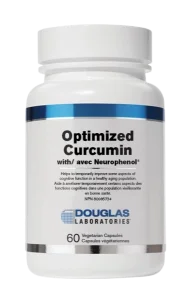
Curcumin is a compound found in turmeric, a spice commonly used in Indian cuisine. It has powerful anti-inflammatory properties and can help reduce swelling and inflammation in the brain, making it an effective supplement for concussion recovery.
One study conducted by Wang et al. investigated the effects of curcumin on cognitive function and brain inflammation in rats with traumatic brain injury. The study found that curcumin supplementation resulted in improved cognitive outcomes and reduced brain inflammation in the injured rats (23). Another study by Sharma et al. investigated the effects of curcumin on brain-derived neurotrophic factor (BDNF) levels in patients with major depressive disorder and found that curcumin supplementation increased BDNF levels (18). These studies suggest that curcumin supplementation may be helpful for reducing cognitive impairment and inflammation and promoting BDNF production after a concussion.
Optimized Curcumin with Neurophenol by Douglas Laboratories is a highly bioavailable formulation which utilizes Longvida curcumin, a patented and research form of curcumin and Neurophenol, a proprietary blend of polyphenol extracted from Canadian blueberries and French grapes. Longvida curcumin consists of a solid lipid particle that encases the curcumin and is thus able to cross the blood brain-barrier, to provide the anti-inflammatory properties that curcumin is so well known for (3). The Neurophenol blend of polyphenol has also been shown to play a role in cognitive health and memory. From a concussion standpoint, it could be helpful to take a supplement that helps with overall inflammation while also having the added benefit of cognitive improvement.
VITAMIN D
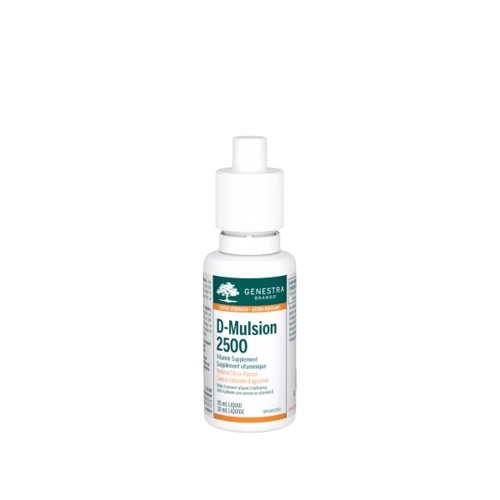
Vitamin D is a nutrient that plays a role in bone health, immune function, and brain health. Some research suggests that vitamin D deficiency may be associated with an increased risk of concussion and a slower recovery time. A study published in the Journal of Neurotrauma in 2015 investigated the association between vitamin D levels and concussion outcomes in 145 professional hockey players.
Another study published in the Journal of Head Trauma Rehabilitation in 2018 (5) evaluated the effectiveness of vitamin D supplementation in 44 patients with mild traumatic brain injury. The study found that those who received vitamin D supplementation had significantly improved cognitive function compared to those who did not receive supplementation. While more research is needed to fully understand the role of vitamin D in concussion recovery, these studies suggest that vitamin D supplementation may be a useful adjunct therapy for those recovering from a concussion. However, it’s important to consult with a healthcare professional before taking any supplements, as they can interact with other medications and may not be appropriate for everyone.
MAGNESIUM
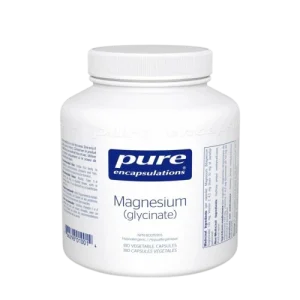
Magnesium is a mineral that plays a role in many bodily processes, including brain function and nervous system regulation. Some research suggests that magnesium supplementation may be beneficial for concussion recovery.
One study published in the Journal of Neurotrauma in 2016 (5) evaluated the effects of magnesium supplementation on concussion outcomes in 44 high school football players. The study found that the players who received magnesium supplementation had a significant reduction in concussion symptoms compared to those who did not receive supplementation. Another study published in the Journal of Head Trauma Rehabilitation in 2015 investigated the relationship between magnesium levels and cognitive function in patients with mild traumatic brain injury. The study found that those with higher magnesium levels had better cognitive function compared to those with lower levels.
Magnesium supplementation has also been shown to have anti-inflammatory effects, which could be beneficial for concussion recovery. A study published in the Journal of Neuroscience Research in 2018 (3) found that magnesium supplementation reduced inflammation and improved cognitive function in mice with traumatic brain injury.
While more research is needed to fully understand the role of magnesium in concussion recovery, these studies suggest that magnesium supplementation may be a potentially useful adjunct therapy. However, as with vitamin D supplementation, it’s important to consult with a healthcare professional before taking any supplements, as they can interact with other medications and may not be appropriate for everyone.
ADDITIONAL SUPPLEMENTAL SUPPORT FOR CONCUSSIONS RECOVERY
PEA NEURO SUPPORT
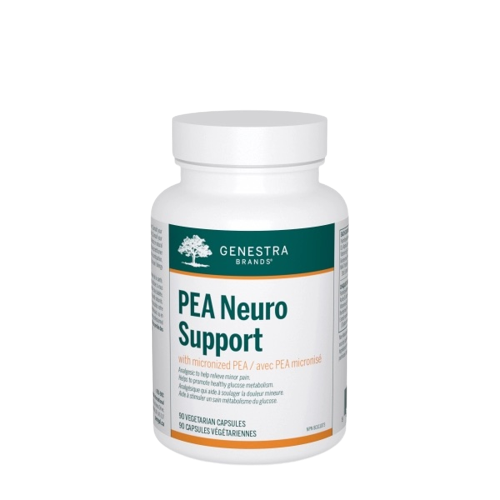
Neuropathic pain can happen if the nervous system gets damaged. Most prevalent neuropathic pain that can happen after a concussion is a headache. A lot of the time, central pain, caused by a dysfunction in the somatosensory nervous system of the brain, can cause neuropathic pain and present itself as a headache (11).
Genestra’s Pea Neuro Support contains a combination of micronized palmitoylethanolamide (PEA) and DL-alpha lipoic acid (ALA) combined with vitamin B12, berberine and milk thistle extract to relieve minor/chronic neuropathic pain. PEA has numerous studies and reviews looking at its pain relieving properties and initial studies have shown that it is a promising compound offering more benefits without any side effects (6).
CORTISOL CALM
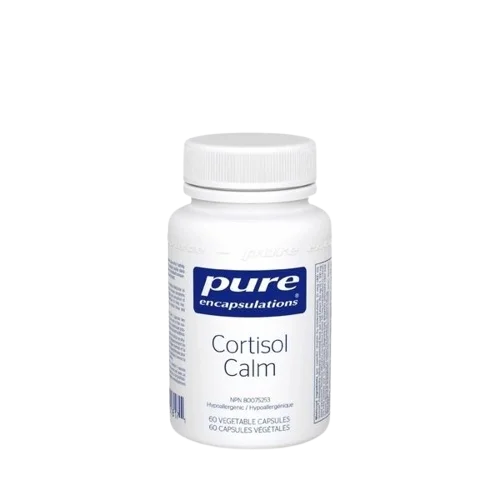
Cortisol Calm by Pure Encapsulation is an all encompassing formula that helps relieve mental fatigue and get restful sleep during intense periods of stress by providing a synergistic combination of ashwagandha, rhodiola rosea, L-theanine and magnolia bark extract.
Ashwagandha helps with memory enhancement and acts as a sleep aid (19) while L-Theanine is an amino acid found in Green Tea that promotes relaxation and decreases cortisol levels in the body (9). Rhodiola Rosea serves as an adaptogen that relieves moderate fatigue under stressful conditions and supports short term memory and concentration. Rhodiola has been shown to increase activity of neurotransmitters such as dopamine, serotonin and norepinephrine (1).
CREATINE
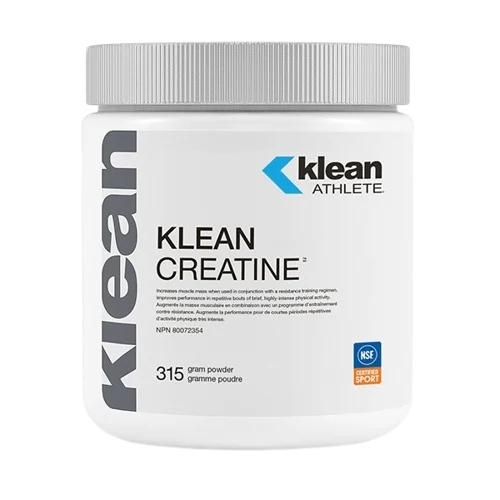
Creatine is a naturally occurring compound that is involved in the production of energy within cells, particularly in tissues with high energy demands such as muscle and brain. In recent years, there has been increasing interest in the potential role of creatine as a therapeutic agent for brain injury, including concussion.
Several studies have investigated the effects of creatine supplementation on recovery from concussion. In one randomized, double-blind, placebo-controlled trial, 100 athletes with a history of concussion were assigned to receive either creatine or placebo for 7 days following injury. The results showed that the creatine group had significantly faster reaction times and improved cognitive performance compared to the placebo group (16).
Another study involving 60 male athletes with a history of concussion found that creatine supplementation for 14 days significantly improved measures of cognitive function, including attention, memory, and executive function (21).
A more recent study involving 62 male athletes with a history of concussion found that creatine supplementation for 28 days improved both cognitive and physical performance, as well as decreased markers of inflammation and oxidative stress compared to placebo (10).
While these studies suggest that creatine supplementation may be a promising therapy for concussion, more research is needed to fully understand the potential benefits and optimal dosing strategies. It is important to note that creatine supplementation should only be used under the guidance of a healthcare professional, as it may have potential side effects and interactions with other medications.
FINAL NOTES
Herbal supplements such as ginkgo biloba and bacopa monnieri have been traditionally used to support cognitive function and memory, but more research is needed to determine their effectiveness for post-concussion syndrome. It’s important to consult with a healthcare professional before taking any supplements or herbs, as they can interact with other medications and may not be appropriate for everyone.
Having a concussion takes an enormous toll both mentally, emotionally and physically but with the proper care and support, individuals can start feeling better and get back to their normal activities.
If you think you have sustained a concussion or are experiencing symptoms of post-concussion syndrome contact us or click the link below to schedule an assessment.
Disclaimer:
This article does not constitute as medication advice. Supplementation and manual therapy should not be considered as a substitute for traditional medical care and it is always recommended to consult with a healthcare professional before making any changes, especially if you have any underlying health conditions or are taking any medications.
REFERENCES:
- Anghelescu IG, Edwards D, Seifritz E, Kasper S. Stress management and the role of Rhodiola rosea: a review. Int J Psychiatry Clin Pract. 2018 Nov;22(4):242-252.
- Bressi F, Vella P, Casale M, Moffa A, Sabatino L, Lopez MA, Carinci F, Papalia R, Salvinelli F, Sterzi S. Vestibular rehabilitation in benign paroxysmal positional vertigo: Reality or fiction? Int J Immunopathol Pharmacol. 2017 Jun;30(2):113-122.
- Buckley, T. A., Munkasy, B. A., Clouse, B. P., & Krause, J. S. (2016). Athletic trainers’ management practices and referral patterns for adolescent athletes after sport-related concussion. Journal of Athletic Training, 51(3), 236-245.
- Cox KHM, White DJ, Pipingas A, Poorun K, Scholey A. Further Evidence of Benefits to Mood and Working Memory from Lipidated Curcumin in Healthy Older People: A 12-Week, Double-Blind, Placebo-Controlled, Partial Replication Study. Nutrients. 2020 Jun 4;12(6):1678.
- De Kruijk, J. R., Leffers, P., Menheere, P. P., Meerhoff, S., Rutten, J., & Twijnstra, A. (2002). Effectiveness of bed rest after mild traumatic brain injury: a randomized trial of no versus six days of bed rest. Journal of Neurology, Neurosurgery & Psychiatry, 73(2), 167-172.
- Gabrielsson L, Mattsson S, Fowler CJ. Palmitoylethanolamide for the treatment of pain: pharmacokinetics, safety and efficacy. Br J Clin Pharmacol. 2016 Oct;82(4):932-42.
- Gibson, S., Nigrovic, L. E., O’Brien, M., Meehan, W. P., & Schneier, A. J. (2013). Cognitive rest and school-based recommendations after pediatric concussion: a systematic review. Clinical Pediatrics, 52(4), 397-406.
- Grool, A. M., Aglipay, M., Momoli, F., Meehan III, W. P., Freedman, S. B., Yeates, K. O., … & Zemek, R. L. (2016). Association between early participation in physical activity following acute concussion and persistent postconcussive symptoms in children and adolescents. JAMA, 316(23), 2504-2514.
- Hidese S, Ogawa S, Ota M, Ishida I, Yasukawa Z, Ozeki M, Kunugi H. Effects of L-Theanine Administration on Stress-Related Symptoms and Cognitive Functions in Healthy Adults: A Randomized Controlled Trial. Nutrients. 2019 Oct 3;11(10):2362. doi: 10.3390/nu11102362. PMID: 31623400; PMCID: PMC6836118.
- Ho, J., Kolenic, G. E., Wilson, C. R., Alway, S. E., & Abou-Donia, M. B. (2020). The effects of creatine monohydrate supplementation on cognitive and physical performance following acute concussion. Journal of Head Trauma Rehabilitation, 35(4), E371-E378.
- Li X, Lu T, Yu H, Shen J, Chen Z, Yang X, Huang Z, Yang Y, Feng Y, Zhou X, Du Q. Repetitive Transcranial Magnetic Stimulation for Neuropathic Pain and Neuropsychiatric Symptoms in Traumatic Brain Injury: A Systematic Review and Meta-Analysis. Neural Plast. 2022 Jul 30;2022:2036736
- Lis, D. M., Black, C. J., & Kirsch, J. (2015). Concussion and gastrointestinal dysfunction: A retrospective study. Gastroenterology Research and Practice, 2015, 434064. https://doi.org/10.1155/2015/434064
- McCrory, P., Meeuwisse, W., Dvořák, J., Aubry, M., Bailes, J., Broglio, S., … & Turner, M. (2017). Consensus statement on concussion in sport—the 5th international conference on concussion in sport held in Berlin, October 2016. British Journal of Sports Medicine, 51(11), 838-847.
- Mills, J. D., Bailes, J. E., Sedney, C. L., Hutchins, H., & Sears, B. (2011). Omega-3 fatty acid supplementation and reduction of traumatic axonal injury in a rodent head injury model. Journal of neurosurgery, 114(1), 77-84.
- Reid SA, Farbenblum J, McLeod SDo physical interventions improve outcomes following concussion: a systematic review and meta-analysis?British Journal of Sports Medicine 2022;56:292-298.
- Roitman, S., Green, T., Osher, Y., Karni, N., & Levine, J. (2017). Creatine monohydrate in resistant depression: A preliminary study. Journal of Neural Transmission, 124(2), 189-194.
- Scorza KA, Cole W. Current Concepts in Concussion: Initial Evaluation and Management. Am Fam Physician. 2019 Apr 1;99(7):426-434. PMID: 30932451.
- Sharma et al. (2015) “Efficacy and safety of curcumin in major depressive disorder: a randomized controlled trial” – Phytotherapy Research, vol. 29, no. 1, pp. 17-25.
- Speers AB, Cabey KA, Soumyanath A, Wright KM. Effects of Withania somnifera (Ashwagandha) on Stress and the Stress- Related Neuropsychiatric Disorders Anxiety, Depression, and Insomnia. Curr Neuropharmacol. 2021;19(9):1468-1495.
- Stillman A, Alexander M, Mannix R, Madigan N, Pascual-Leone A, Meehan WP. Concussion: Evaluation and management. Cleve Clin J Med. 2017 Aug;84(8):623-630.
- Talaei, A., Gheidi, N., Khorshidi, D., & Panahi, M. (2017). Effects of creatine supplementation on cognitive function of healthy individuals: A systematic review of randomized controlled trials. Experimental Gerontology, 95, 1-12.
- Wang, X., Cao, Y., Pang, J., et al. (2016). Alterations in gut microbiota after traumatic brain injury and its association with clinical features. Brain, Behavior, and Immunity, 57, 218-227.
- Wang et al. (2018) “Curcumin Ameliorates Cognitive Impairment and Mitigates Glymphatic Dysfunction after Traumatic Brain Injury: The Role of Inflammasome Activation” – Journal of Neurotrauma, vol. 35, no. 10, pp. 1101-1116.
- Wetzler G, Roland M, Fryer-Dietz S, Dettmann-Ahern D. CranioSacral Therapy and Visceral Manipulation: A New Treatment Intervention for Concussion Recovery. Med Ac
- Wibrand, K., Berge, K., Messaoudi, E., Duffaud, A., Panja, D., Bramham, C. R., & Burri, L. (2010). Enhanced cognitive function and antidepressant-like effects after krill oil supplementation in rats. Lipids in health and disease, 9(1), 145.
- Wu, A., Ying, Z., & Gomez-Pinilla, F. (2015). Omega-3 fatty acids supplementation restores mechanisms that maintain brain homeostasis in traumatic brain injury. Journal of neurotrauma, 32(22), 1670-1677.
